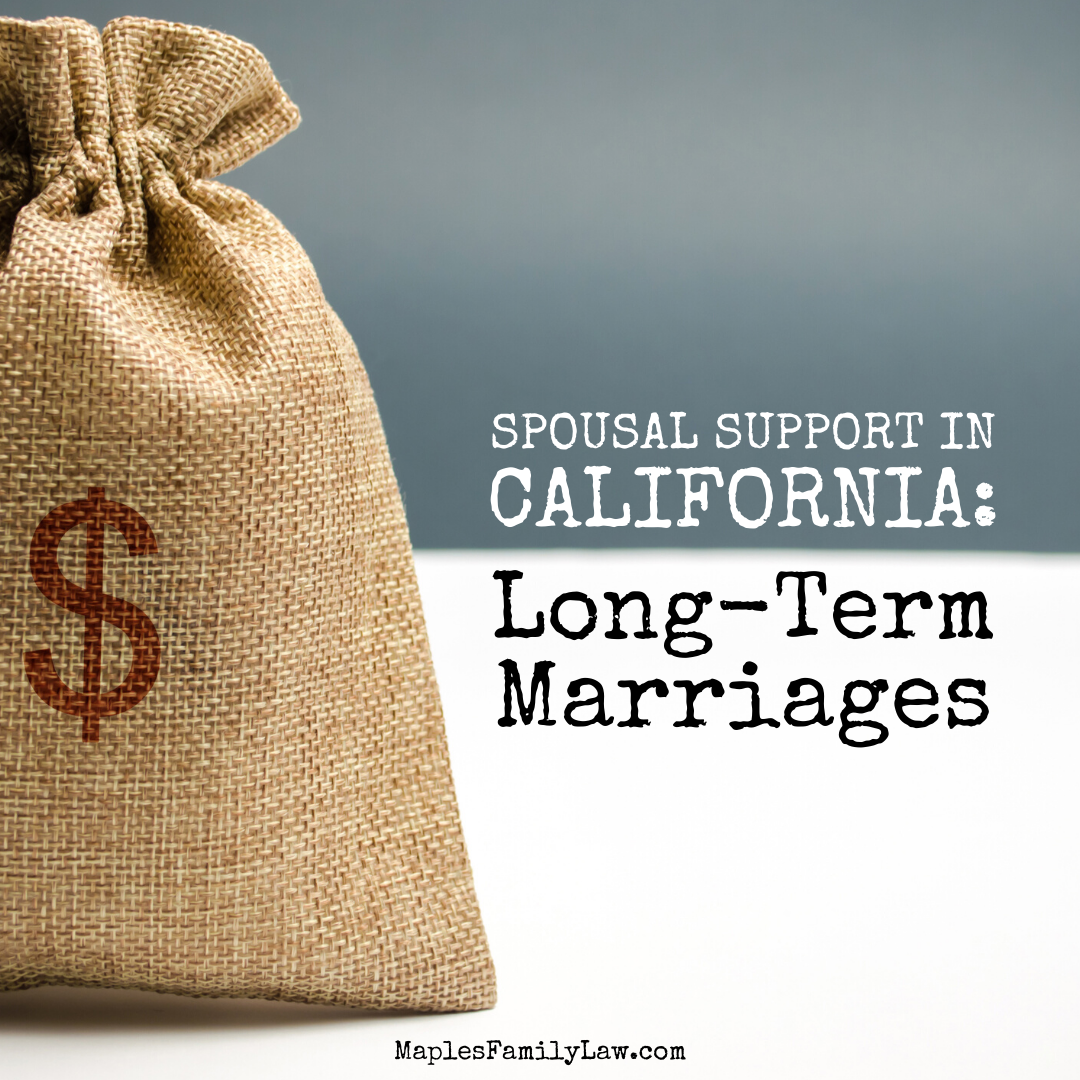
Spousal Support in California: Long-Term Marriages
Spousal support in California after a long-term marriage is different from spousal support after a short-term marriage. The courts have a lot of leeway in determining the amount and duration of support, but California Family Code outlines specific guidelines when a marriage is long-term.
So how does spousal support in California work after a long-term marriage?
Spousal Support in California: Long-Term Marriages
California Family Code, Section 4336 defines a long-term marriage as one lasting 10 years or more. However, the law also says that the court can consider periods of separation during the marriage – so if you’ve been married for 12 years but separated for 4 years, the court may decide that your marriage wasn’t actually “long-term.”
Conversely, nothing in the law prevents the court from determining that a marriage lasting less than 10 years is a long-term marriage, either. That means even if you were only married for 7 years, the court could consider it a “marriage of long duration.” And while there’s no way to predict how a judge will rule, your Stockton divorce attorney can talk to you about the length of your marriage and what kind of spousal support you’re likely to pay or receive.

In short-term marriages, the courts can order spousal support for a set period of time. However, once support ends, the court no longer has jurisdiction over it. That means the spouse who was receiving support can’t come back to the court and ask a judge to re-order support if he or she still needs it.
Conversely, in long-term marriages, the courts can order spousal support for a set period of time. However, once the paying party’s obligation ends, the receiving spouse can come back to the court and ask the judge to create a new support order.
Related: What is temporary spousal support in California?
Here are a couple of examples.
Spousal Support in California: Example #1
Matt and Jenn were married for 9 years. The court determines that theirs was not a long-term marriage and orders Matt to pay Jenn spousal support for 5 years. The spousal support order ends the courts jurisdiction after Matt’s support obligation ends. Jenn can ask the court to change the amount she receives in spousal support during that initial 5 years, but after that, the court can’t do anything for her – even if she needs it.
Spousal Support in California: Example #2
Krysten and Amy were married for 14 years. Because the marriage lasted more than 10 years and the two were not separated at all during that time, the court does consider it a long-term marriage. The spousal support order requires Krysten to pay Amy spousal support for 7 years. After 7 years, Amy can come back and ask the judge to issue another support order – and the court retains jurisdiction over the case until Amy remarries or dies.
Related: What is considered income for spousal support?
The 10-Year Myth in Spousal Support
A lot of people ask about the 10-Year rule in spousal support, but there’s no such thing – it’s a myth. The court determines whether a marriage is long-term, and sometimes judges rule that marriages that lasted fewer than 10 years are still long-term.
Will My Ex Get Spousal Support for Life?
In some long-term marriages – and even after some short-term marriages – one spouse is entitled to receive spousal support for life. Sometimes this happens when a couple is married for a long time and one party hasn’t worked, or when one party is disabled and cannot care for him- or herself. Again, there’s no way to predict how a judge will rule, so if you’re not sure, it’s best to talk to your lawyer about your situation.
Do You Need to Talk to a Lawyer About Spousal Support in California After a Long-Term Marriage?
If you need to talk to an attorney about spousal support after a long-term marriage in California, we may be able to help you. Call us at (209) 546-6246 to set up a consultation to talk about your case and get answers to all your questions, including those about child custody and child support, property division and more.


